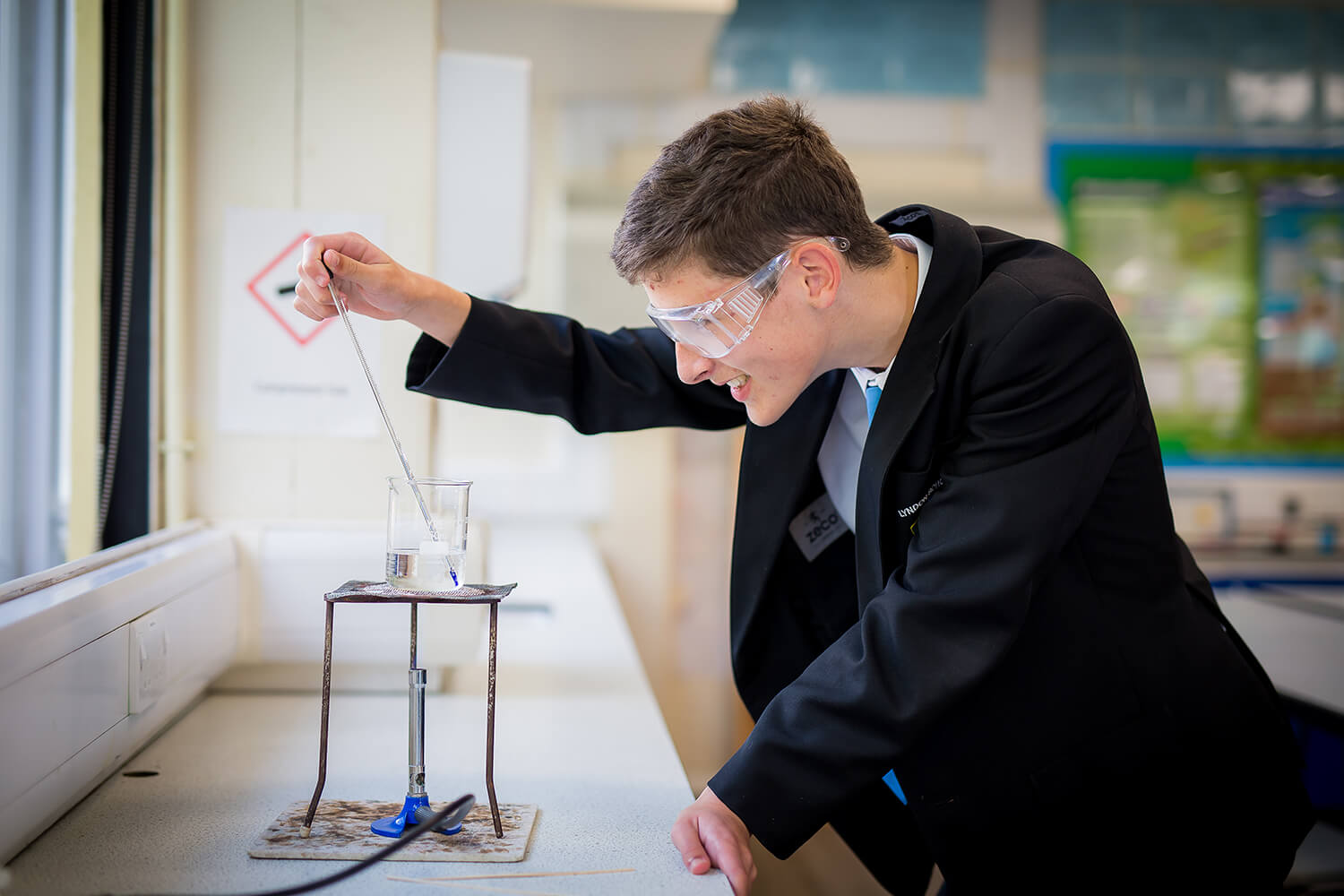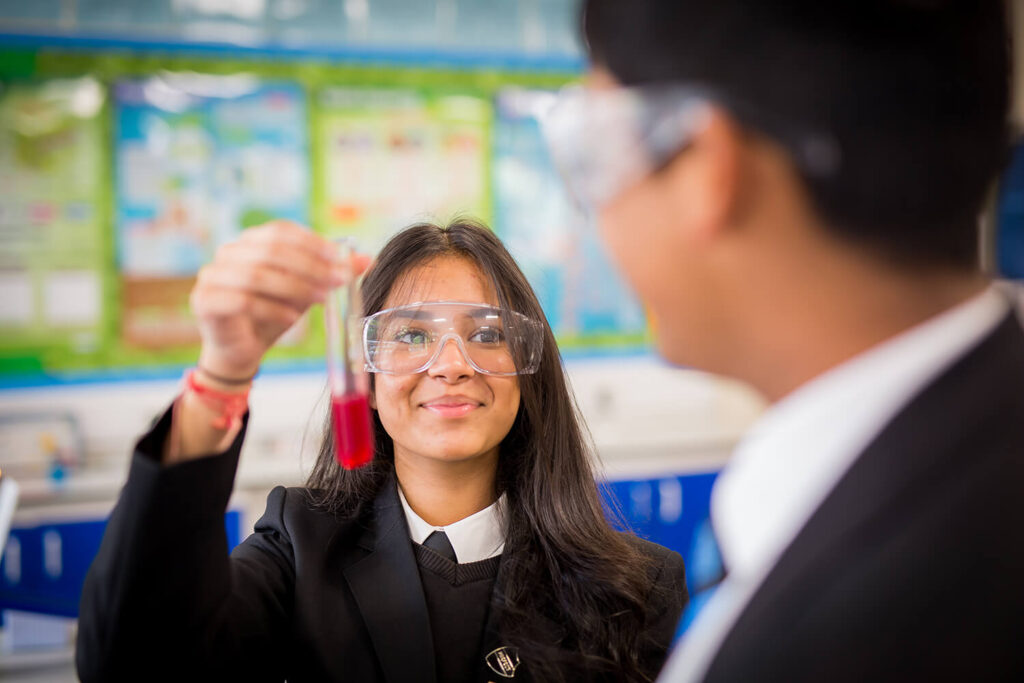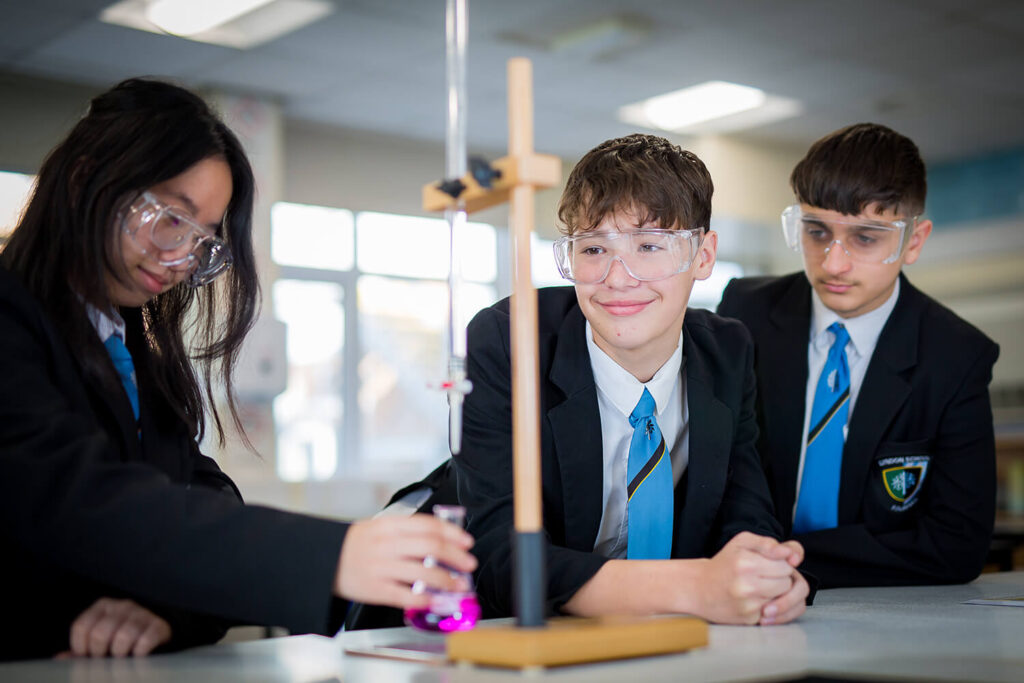Curriculum Intent
‘Learning through curiosity’
The Science curriculum at Lyndon School equips our learners with the skills and scientific language to understand and navigate science phenomena in the world around them. It is inclusive and tailored to meet the specific needs of all learners; we firmly believe science is for everyone. Science curriculum a spiral curriculum that allows learners to build on secure prior learning at each stage, affording learners the opportunity to connect composite parts of knowledge they are taught.
All groups of learners are challenged, and lessons are designed to spark curiosity through ‘how?’ and ‘why?’ driving questions at the beginning of each lesson. To drive learning through curiosity, learner ‘driving question responses’ are reflected upon at the end of each lesson. To support learners in making these links and to engage in the knowledge-rich curriculum, all lessons are based on the Excellence in Teaching Programme (EiTP) underpinned by Rosenshine’s Principles of Instruction. Cumulatively these strategies are delivered to embed critical thinking and understanding.
Learners are encouraged to have a passion for the sciences; colleagues support learners by developing a secure climate in which learners can develop their resilience and confidence in both their literacy and practical skills.
Learners are provided with a variety of enrichment opportunities hosted on site from guest visitors such as The Royal Navy and Energy Quest to a variety of science, technology, engineering, and mathematics (STEM) opportunities from or at various institutions.
To support all learners with future pathways and courses of study, we deliver science enrichment sessions hosted by Solihull Sixth Form College to broaden learner perspectives and opportunities.
The Summit Learning intent is secured in Science at Lyndon through our ‘learning trough curiosity’ ethos; colleagues are inclusive of all learners by ‘teaching to the top’ to secure equal opportunities and outcomes for all our learners. Individual needs are addressed through learner profiles and all groups of learners’ needs are addressed in class contextualisation sheets.
Our Science curriculum equips learners with a moral grounding to support the needs of our diverse local, national, and international communities with regards to sustainability and equality for all. Learners are provided with opportunities throughout the year to engage with STEM projects and STEM-related professionals to develop a deeper knowledge and develop complex skills to be successful in future education, work and life.
.






